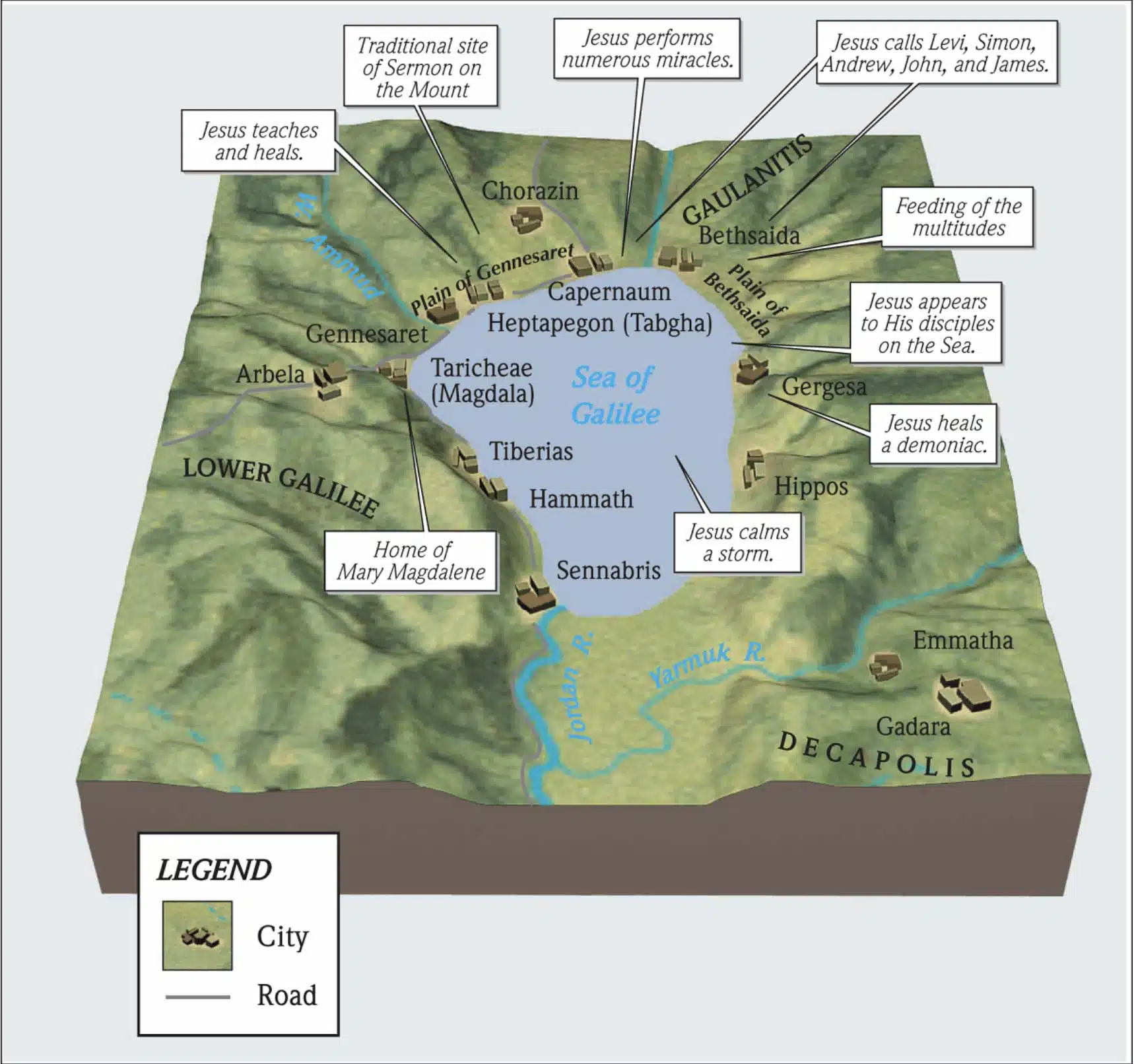The Council heeds Gamaliel’s advice to not kill the apostles. But they have them whipped all the same, then forbid them again from teaching about Jesus. When released, the apostles praise God that He found them worthy of persecution. They go right back to preaching that Jesus is the Messiah, in the temple and at people’s homes.
One of the Pharisees has just advised the Council to be cautious with how they approach the apostles. He reminds the Sadducees and Pharisees of two failed self-appointed movement leaders from the past who died, and all the people who followed them abandoned the cause and it came to nothing. He reasons that if the apostles of Jesus are not of God, their movement will be undone, but if they really are from God, then the Council cannot stop them, nor would it want to, unless it wanted to declare itself enemies of God.
So the Sanhedrin took Gamaliel’s advice. Yet, they did not take his advice to its full extent, for they still deemed it necessary to punish these men and try to silence them: after calling the apostles in, they flogged them and ordered them not to speak in the name of Jesus, and then released them. This was not as severe a punishment as what they had wanted to do to the apostles, which was to kill them (Acts 5:33). Still, they were not showing true interest in figuring out if these men were of God or not. They were only interested in preserving their power and position. They flexed their power by having the apostles flogged and tried to stifle their ministry by again ordering them not to speak in the name of Jesus. The Council of Pharisees and Sadducees were satisfied to kick the can down the road, but it would be a short enough road, for very soon their desire to kill followers of Jesus will become a reality.
However, after being flogged, the apostles are released. So they went on their way from the presence of the Council. As they journey home, they do not weep, or feel sorry for themselves, or complain, or ask God why they have suffered. Instead, they were rejoicing that they had been considered worthy to suffer shame for Jesus’s name.
Jesus had warned them these things would happen.
“But be on your guard; for they will deliver you to the courts, and you will be flogged in the synagogues, and you will stand before governors and kings for My sake, as a testimony to them.”
(Mark 13:9)
At one point, after His resurrection, He implies to Peter that he will one day die for preaching the gospel (John 21:18-19). But in the Sermon on the Mount, Jesus taught that it was a blessing when His disciples are persecuted for His name’s sake:
“Blessed are you when people insult you and persecute you, and falsely say all kinds of evil against you because of Me. Rejoice and be glad, for your reward in heaven is great; for in the same way they persecuted the prophets who were before you.”
(Matthew 5:11-12)
The apostles took this to heart. They recognize they are part of a bigger story. They are amazed, taking on the mindset of, “God counted us worthy to be persecuted; this is wonderful.”
It is likely that they understood that suffering for Christ leads to the greatest possible rewards of this life (Romans 8:17b).
Despite the arrests, the threats, and the physical beatings, the apostles carry on with preaching the Gospel of Jesus. Nothing the Sanhedrin or Council has done has deterred them. They return to the temple to do just as they had been doing. Luke writes that every day, both in the temple and going from house to house, the apostles kept right on teaching and preaching Jesus as the Christ.
It was just as Peter and John had told the Sanhedrin at their first trial, “we cannot stop speaking about what we have seen and heard” (Acts 4:20). They could not and would not cease to preach Jesus as the Christ. Their prayer for boldness was answered (Acts 4:23-31). They acted boldly, and were undeterred. They were even grateful to have the privilege to suffer for Christ. This shows that the apostles understood what was the true meaning of life, and had a perspective that was transformed to look beyond the trite priorities of this world (Romans 12:1-2).
Biblical Text
40 They took his advice; and after calling the apostles in, they flogged them and ordered them not to speak in the name of Jesus, and then released them. 41 So they went on their way from the presence of the Council, rejoicing that they had been considered worthy to suffer shame for His name. 42 And every day, in the temple and from house to house, they kept right on teaching and preaching Jesus as the Christ.
Check out our other commentaries:
-
Exodus 24:4-11 meaning
Moses and the elders are called to come before the LORD for worship. The covenant of the LORD is ratified....... -
Hosea 9:7-9 meaning
Hosea tells Israel that the time of judgment has arrived. It has come upon her because she has been hostile toward God’s prophets and has...... -
Matthew 21:18-19 meaning
In the morning after Jesus’s triumphal entry, Jesus travels back to Jerusalem from where He spent the night in Bethany. He becomes hungry and sees...... -
Hosea 1:1 meaning
Hosea receives the word of the LORD during the days of Uzziah, Jotham, Ahaz and Hezekiah, kings of Judah, and during the days of Jeroboam...... -
Romans 16:3-5 meaning
Prisca and Aquila are prevalent Christians in the New Testament. Paul greets and thanks them for their ministry. It is possible that they took a......



